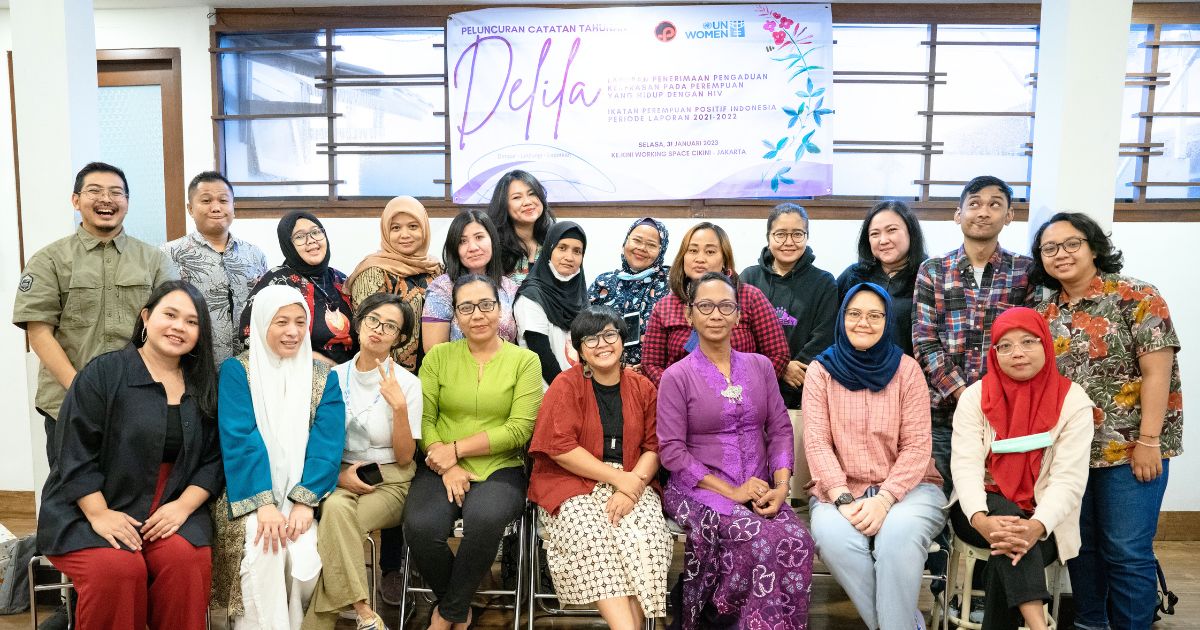Take five: “The perception that women living with HIV are ‘bad women’ makes people normalize violence against them”
Date:
Interviewed by Gracia Marcelin.
![[photo]](/sites/default/files/2023-11/ap-id-TakeFiveAyu-1200.jpg)
Ayu Oktariani, 37 and based in Bandung, is the national coordinator of the Indonesia Positive Women Network (IPPI, for its acronym in Bahasa Indonesia), a national nongovernmental network founded by women living with HIV and affected by HIV in Indonesia. UN Women has supported IPPI since 2011. In 2020, UN Women started supporting the network in addressing violence against women living with HIV, building the online platform DELILA for women to report cases of violence, and providing referral services for these women.
Why do women living with HIV face a greater risk of violence?
Even before a woman is infected with HIV or if she is a person who is not living with HIV, she is already vulnerable to violence. Due to the patriarchal culture, women have low bargaining power. There are still social and cultural beliefs that believe women must obey men, whether in the context of a partner, family, father, older brother, or leader.
After being infected with HIV, the situation that women face becomes more difficult. Society, family, and even partners see them as a "bad woman". The perception that women living with HIV are "bad women" makes people normalize violence against them. So, if a woman living with HIV is being hit or treated poorly, that's normal; she is worthless.
What are some of the challenges faced by women living with HIV who experience violence?
First is a lack of access to information, education, finance, and good support systems. Often, violence is normalized, and victims don't know what they have experienced is a form of violence. Second, patriarchal societies silence women. This is why many women don't dare to report their violence cases. Third, when women living with HIV have the courage to speak out, they still face stigma and discrimination when accessing health services. Although many health service providers accept and understand the needs of women living with HIV, the number of those that are doing so is not enough.
Why is integrating services for HIV care, support and treatment, and against violence against women important?
If services for women victims of violence and HIV care are integrated, people will become more confident in reporting their cases. Women living with HIV will have information on access to legal aid, free medical examination, and free government safe house services. We must advocate for these services, and the standardized mechanism for these interlinked services must be prepared in order to protect women living with HIV from all forms of violence.

How has UN Women supported your organization in ending violence against women living with HIV?
Last year, we launched DELILA, an online database and reporting system for women living with HIV who are victims of violence, with support from UN Women. This reporting system resulted from in-depth brainstorming with UN Women. We received support in building the system, creating the standard operating procedures, and opening access to networks with violence against women support services.
How to accelerate gender equality in HIV response?
First, we need good leadership to address HIV in Indonesia, including a good understanding of integrating a gender perspective in policymaking, planning and budgeting. In addition, all stakeholders involved in addressing HIV must have a gender perspective, including government officials, civil society organizations, and health-care providers. Secondly, and more importantly, women living with HIV must be involved in policy decision-making and programme analysis of HIV prevention in Indonesia.